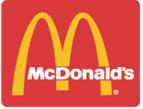CASE STUDY

In organizational theory, culture is a commonly researched subject matter. A link is often drawn between a strong organizational culture and dominance in the market place. Culture is shaped by an organization’s unique history and situational growth. It can be defined as the values, beliefs, and expectations more or less shared by the organization’s members. It affects the way a company does business and makes known relevant employees, customers, suppliers, and competitors. Managers and upper level executives are responsible for instilling the values and norms into employees so they not only know what is expected of them, but are eager to perform in such a way as to benefit the company. A top-rate administrator is able to create sources of meaning and identification by providing an atmosphere that is rewarding for its employees and customers. (Scott and Davis, 2007)
A nation’s culture, similar to that of an organization, is comprised of the symbols, values, rituals, and traditions of the people living in a particular region. Language, food, and family traditions are all rooted in national culture. How people behave in public verse how they behave within their own home is also associated with values and standards of their nation. Cultures usually differ in relationships between the individual and society, ways of dealing with conflict, relationships to authority, and conceptions of class and gender. All of these things are comparable to organizational culture, just on a grander scale.
I am very interested in the concept of culture. I took a semester class called Food, Eating, and Culture in which we studied the social significance of food and eating. We explored taboos and rituals, food and identities, eating and political hierarchy, and global culture. In reading the assigned articles, relationships began forming between the materials discussed in my Food, Eating and Culture class and my Organizational Theory class. An article entitled Of Hamburger and Social Space: Consuming McDonald’s in Beijing particularly struck my interest. The article reviewed the development of the Western fast-food sector and the local responses of people in Beijing. The Chinese are recognized for their great traditions and rich culture and so, it was questioned whether McDonald’s would be able to translate its well established business model from the West into something suitable for people in the East. Even with all the doubt, McDonald’s was able to take Asia by storm with irrefutable success, but how? The article made my brain spin with questions about management and leadership, organizational culture and national culture. When globalizing the golden arches, did management try and adapt to the local culture or were they dependent on the locals adapting to its established organizational culture; which way did the flow of information go?
I seek to answer this and many other pressing questions I have about culture and the globalization of organizations through a series of posts. I hope to touch on the importance of managerial leadership, the benefits of a strong organizational culture, and the power of national culture in the mist of globalization. Finally, I would like to discuss the reality of a strong rejection of McDonaldization and the movement that is set on returning nations back to a time when “slow food” was at the core of national cuisine.